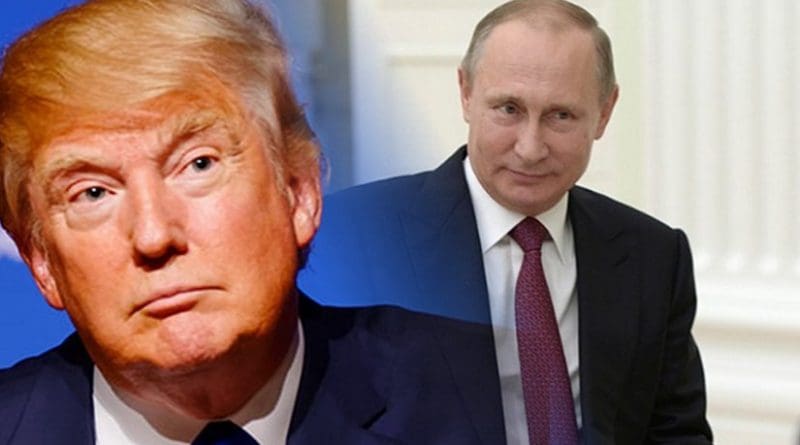US Congressional Democrats To Seek Transcripts Of Trump’s Putin Conversations
By RFE RL
(REF/RL) — The chairman of the U.S. House Intelligence Committee has said he will seek access to transcripts of President Donald Trump’s telephone conversations with foreign leaders, including Russian President Vladimir Putin.
Congressman Adam Schiff (Democrat-California) said on NBC television on September 29 that he believes it is important to “see whether in the conversations with other world leaders, and in particular with Putin, that the president was also undermining our security in a way that he thought would personally benefit his [reelection] campaign.”
Schiff’s committee is looking into a whistle-blower complaint asserting that during a July telephone call Trump asked Ukrainian President Volodymyr Zelenskiy to launch an investigation into former Vice President Joe Biden — a leading Democratic rival for the 2020 presidential race — and his son, Hunter Biden.
The whistle-blower’s complaint alleged that White House officials had placed records of the Zelenskiy phone call and those of other possibly problematic conversations on a secret computer server reserved for national-security matters.
“If those conversations with Putin or with other world leaders are sequestered in that same electronic file that is meant for covert action, not meant for this, if there’s an effort to hide those and cover those up, yes, we’re determined to find out,” Schiff told NBC.
The Intelligence Committee has reached an agreement to have the whistle-blower – who has not been identified publicly — testify before the panel in the near future, Schiff later told ABC television.
Russian Foreign Minister Sergei Lavrov said on September 27 that it would be “inappropriate” for Trump to release transcripts of his conversations with Putin.
“It is indecent,” he said. “For two people elected by their nations to be at the helm, there are diplomatic manners that suppose a certain level of confidentiality.”

